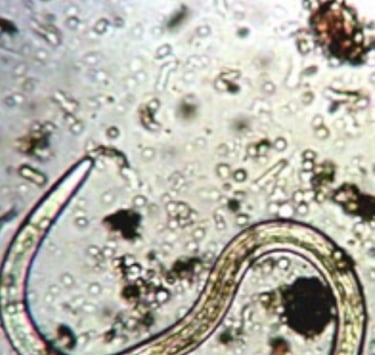Understanding Soil Microbes: Nature's Agricultural Powerhouse
What Are Soil Microbes?


Soil microbes are microscopic organisms that form the foundation of healthy soil ecosystems.
The Importance of Soil Microbes


Imagine the soil beneath your feet as a bustling underground city, where billions of microscopic inhabitants work in perfect harmony. These aren't just passive residents - they're the architects, engineers, and maintenance crews that God designed to keep our planet's ecosystems functioning. Without these divinely created microbes, Earth's surface would be buried under mountains of undecomposed leaves and fallen trees, while essential nutrients would remain locked away in forms unusable to plants.
The Threat of Chemical Fertilizers
The relationship
How to Naturally Increase Microbial Life in Your Soil
Write your text here...


Worm Castings vs Insect Frass
Insect Frass:
Using Teas and Extracts
Write your text here...
Additional Ways to Boost Soil Microbes:
Write your text here...
Write your text here...
Write your text here...
The Long-term Investment Value of Castings
The Impact of Healthy Soil on Plant Growth
Write your text here...






These tiny life forms, including bacteria, fungi, archaea, and protists, work tirelessly beneath our feet to maintain soil health and support plant growth.
These microscopic organisms come in two main types: single-celled (bacteria, most archaea, and protists) and multicellular (most fungi). While it might sound complicated, think of single celled organisms as tiny individual workers, while multicellular ones, like fungi, form interconnected networks throughout the soil - similar to an underground web. Together they create the living foundation of healthy soil that your plants need to thrive.
Whether single-celled or multicellular, these organisms work together to:
Break down dead plant material into nutrients
Help plants absorb water and minerals
Protect plants from diseases
Create soil structure that holds water and prevents erosion
